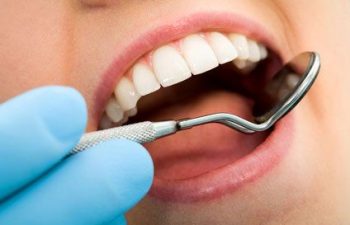At Grateful Dental, we work hard to provide the highest level of care while you are here in our office. However, we realize that certain dental procedures will require recovery and care at home. To ensure our patients understand what to expect and are equipped with ways to expedite their dental healing, here are some post-operative instructions and guidelines for the most popular types of oral surgeries: dental implant surgery and tooth extractions.
After Dental Implants
When it comes to dental implants, the healing phase is paramount. In fact, the success of your dental implant relies heavily on the implant’s ability to heal and fuse to the surrounding bone after your surgery. This is a process that will continue for several weeks after your procedure.
First 24 Hours: There are important rules to follow immediately after your implant surgery, as it is critical that you do not disturb the wound. Patients should not rinse, spit or even touch the wound on the day of surgery. Minor bleeding and swelling is normal. Do NOT use a straw. NO smoking at any time during your healing process.
Pain Management: You will likely be given a prescription for pain medication. However, many patients rely on over-the-counter Ibuprofen every 4 to 6 hours as needed. Do NOT take aspirin for pain.
Antibiotics and Mouth Rinse: Please take the prescribed antibiotic until it is gone and gently use the antibacterial mouth rinse on the recommended basis. These are important steps to prevent infection in and around your surgical site.
Diet/Eating: For the initial few hours after your surgery, it is best to have cold liquids only, as this will help with inflammation as well as support proper clotting. Drink plenty of liquids but avoid using a straw. After the first six hours, you may eat soft foods, such as yogurt, eggs or soup. Avoid hard or crunchy foods until we instruct you otherwise.
Activity: When your body is healing, you need plenty of rest. Be mindful of this, and do not overexert yourself or participate in vigorous exercise too soon.
After Tooth Extraction/Wisdom Teeth Removal
Any time a tooth is extracted or removed, there will be an incision site within the gums that needs to heal properly. Most importantly, the blood needs to clot so that your body’s natural healing process can take place. As you leave the office from your extraction procedure, you’ll likely be biting down on a gauze pad to control bleeding, and you should continue to do this for the next 45 minutes or until the bleeding has stopped. Once the blood clot has formed, it is critical that you leave the site alone. In order to avoid disrupting the blood clot after an extraction, avoid rinsing, brushing, flossing and using a straw. Smoking and drinking alcohol should also be avoided. Rigorous activity should be limited for at least the first 24 hours.
Minor pain and swelling is normal after tooth removal. Over-the-counter ibuprofen can be used as needed, as well as an ice pack on the face to reduce swelling and discomfort. If you were given antibiotics after your procedure, please make every effort to follow the instructions in taking them, as this helps to fight oral infection.
Your diet on the day of your extraction surgery should consist of plenty of liquids and soft foods. As your comfort allows, you may introduce normal foods. While you need to avoid brushing and flossing on the day of your procedure, don’t neglect proper oral hygiene in the subsequent days. You’ll need to be gentle around the extraction site, but a clean mouth will facilitate faster and more comfortable healing.
When to Call Us
If you have had dental surgery, either an extraction, dental implants or other invasive procedure, it is important that you know what is normal and what is not. If you experience a fever, excessive bleeding, abnormal swelling or unmanageable pain, please call us promptly. We never want our patients to be in question when it comes to their post-operative recovery, as this is an important phase of your dental treatment plan and can largely affect the overall outcome of your procedure. To learn more about how to prepare for your upcoming oral surgery, please call Grateful Dental in Marietta.














